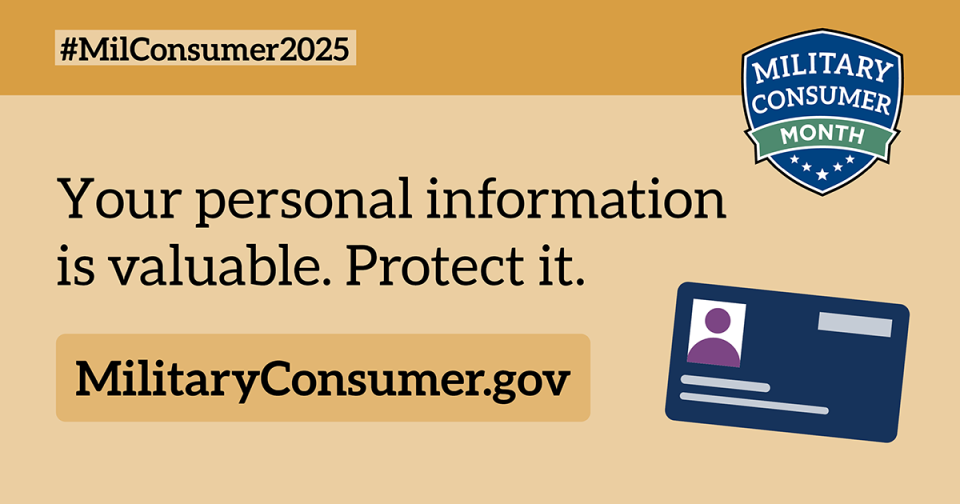If you’re a servicemember, you’re probably used to moving around every few years. Whether you’re moving a few states away or to another country, you might need to break a lease, sell a car, or redirect your mail to a new address — all things involving your personal information. While planning your next big move, help protect your sensitive info from scammers.
If scammers get hold of personal details like your name, date of birth, and Social Security number, they might get access to your accounts, take your money, or even steal your identity. Put these steps into practice regularly to help protect your personal information:
- Update your computer software and phone to automatically install the latest security patches.
- Keep financial records and other sensitive documents in a safe place. Shred them before throwing them away. Make sure you contact the United States Postal Service to forward mail to your new address.
- Don’t share your Social Security number unless absolutely necessary. If someone asks for sensitive information, ask yourself: Why do they need this information? What’s going to happen to it?
Before you hit the road or catch a flight to your next duty station:
- Consider freezing your credit. That’s the best way to keep scammers from getting into your credit report. Bonus: place an active duty fraud alert on your credit report and sign up for free active duty credit monitoring for added protection.
- Review your credit card bills and bank account statements while traveling. Look for transactions you didn’t make.
- Check your free credit reports at AnnualCreditReport.com. Look for signs that someone is using your information, like accounts in your name you don’t recognize. You can get a free credit report every week.
If you think someone stole your identity, report it and get a personal recovery plan at IdentityTheft.gov.

